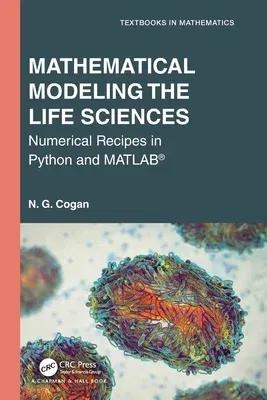The purpose of this unique textbook is to bridge the gap between the
need for numerical solutions to modeling techniques through computer
simulations to develop skill in employing sensitivity analysis to
biological and life sciences applications.
The underpinning mathematics is minimalized. The focus is on the
consequences, implementation, and application. Historical context
motivates the models. An understanding of the earliest models provides
insight into more complicated ones.
While the text avoids getting mired in the details of numerical
analysis, it demonstrates how to use numerical methods and provides core
codes that can be readily altered to fit a variety of situations.
Numerical scripts in both Python and MATLAB(R) are included.
Python is compiled in Jupyter Notebook to aid classroom use.
Additionally, codes are organized and available online.
One of the most important skills requiring the use of computer
simulations is sensitivity analysis. Sensitivity analysis is
increasingly used in biomathematics. There are numerous pitfalls to
using sensitivity analysis and therefore a need for exposure to worked
examples in order to successfully transfer their use from mathematicians
to biologists.
The interconnections between mathematics and the life sciences have an
extensive history. This book offers a new approach to using mathematics
to model applications using computers, to employ numerical methods, and
takes students a step further into the realm of sensitivity analysis.
With some guidance and practice, the reader will have a new and
incredibly powerful tool to use.
https: //www.math.fsu.edu/ cogan/Book/Codes/Codes.html

